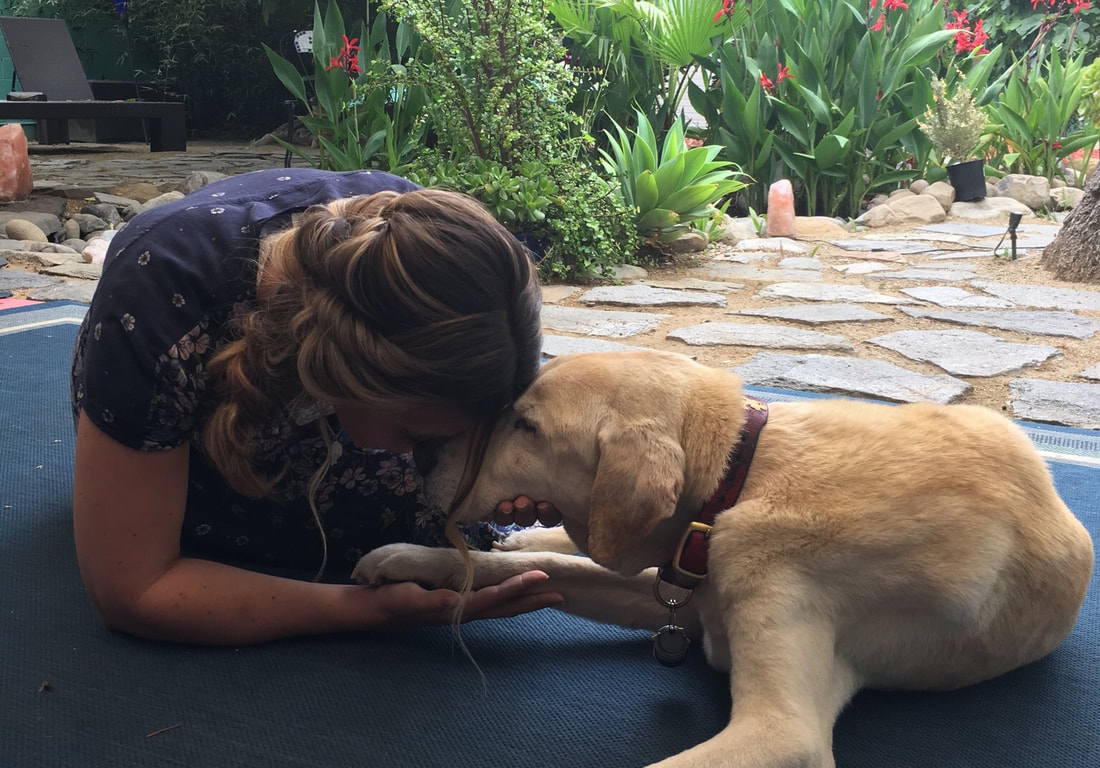|
The loss of a beloved pet can be the deepest heartbreak of our lives. With each article, we will address and answer a key topic with Certified Pet Grief Counselor, Pina De Rosa (APLB / AAVSB). If you wish to send in questions for Pina, please submit them to Pina De Rosa through www.PetBereavementCounseling.com In our last topic on Pet Grief Counseling, we addressed two holiday-related questions that I was asked recently. About dressing up pets in Halloween costumes: “What are your reflections and opinions about pet owners dressing up their animals? Is there any possible problem or potential danger in this behavior?” As well as how to counsel a pet parent who will not euthanize a terminally ill and suffering pet, because of Judeo-Christian religious reasons? With this topic, we get to look at why is it important for the bereft pet parent to be made aware of and understand the stages of bereavement? What is the difference between denial and disbelief? What about closure vs. resolution? It is important for the bereft pet parent to be made aware of and understand the stages of bereavement as it can support the newly bereft pet-owner in understanding that such overwhelmingly sorrowful emotions are to be expected. When a huge stable part of the pet parent daily life is abruptly ripped out, they are in a deep emotional state of shock. Often times they are not equipped to cope with their pet’s death. Even if they prepare themselves, they are rarely ready. It is helpful for the pet parent to understand that such overwhelming experience with grief and loss is something that most people experience when coping with a deep heart-wrenching loss. The length of grief is unpredictable, from a few days to a few weeks, or even longer. Understanding this, and the phases of mourning, can lessen any fear they may feel from such emotional trauma. The heartbreak they feel is so tragic, they may feel they need to endure it to no end. Understanding that the overpowering emotions they are feeling are normal can serve as a road map of the path ahead. People are often afraid of death, which can cause them to be afraid of feeling such unbearable new emotions. If they do not allow themselves to feel their true feelings, they end up causing even more psychological harm to themselves. It is beneficial to their healing process to know that the initial shock, denial and disbelief they feel are absolutely normal. And that letting out their tears is not a weakness, but a necessary part of healing. It is important to reassure them that vacillating between anger, alienation and distancing is a normal temporary response to the suffering they feel. It is often too hard for the bereft pet-owner to comprehend such loss. Letting them know that these stages are all normal during mourning, and that they are non-sequential, will help them cope with the vast scope of emotions. They may feel they are losing it, they are likely to feel guilt, and even experience some degrees of depression before they the get to a place of spiritual and emotional healing. Addressing them with understanding and compassion will help the bereaver make the journey towards that healing and resolution. It’s important to remember that as Megan Devine puts it best in her most excellent book “It’s ok you’re not ok – meeting grief and loss in a culture that doesn’t understand”, grief is not a problem that needs a solution, it is an experience that needs support. Her book, along with Dr. Wallace Sife’s book “The loss of a pet – a guide to coping with the grieving process when a pet dies” are both truly excellent sources of support. They also make wonderfully thoughtful gifts for our friends when their pets pass. It is also very important to note that at the beginning of the grieving experience, there is a difference between denial and disbelief. Each can affect a bereaving pet parent as follows. Denial and disbelief are two separate responses to the initial shock of the death of a dearly beloved pet. Denial is a mental reaction that occurs when the mind categorically refuses to accept something too painful to bear. It is a temporary psychological reaction that unconsciously switches off reality when the facts are too upsetting to accept. Disbelief is a conscious doubt to admit the fact that the pet has died. The client does not like that truth, is often stunned by it, and finds it most challenging to process it. Disbelief is always the first one to occur, followed by denial. Both are normal initial stages of mourning. Denial and disbelief usually are the briefest of all the stages of grief, both necessary to the process of grieving and healing. The difference between denial and disbelief is the following. Denial functions as an unconscious circuit breaker that is triggered when the stress is too extreme for the mind to bear. When a client is in denial they are in a fantasy that the pet is not really dead. They refuse to admit it. During disbelief, the client recognizes the truth, yet a part of them still does not want to embrace it nor believe it. When the client is in disbelief, they feel in a daze as the truth has not yet sunk in. Denial is a protective fantasy that shields the client from the initial shock. During denial the client not only avoids acknowledging their beloved pet’s death, but they also passionately hope and wish for their return. Fueled by that hope, they may sometimes “bargain” with God and they might even contact pet psychic. Once the initial shock subsides, and once the reality sets in, so does the pain. With the death of a pet there is no “closure” rather there is “resolution”. This is how we can help the bereft pet parent to work toward this stage? Resolution is the final stage of bereavement. It is the time when the client gets to keep the memory of their beloved companion, while being able to let go of the sharp pain and anguish they have been experiencing until now. It is when they learn to live with the pain of the loss. Resolution is the time when the client is able to shift from feeling like a victim to honoring their pet’s precious brief life. Those heartwarming memories allow the bereaver to experience a new depth of love for their special companion. We now use this term instead of “closure” because, in psychology, “closure” is usually related to finding a solution to a problem. That is not a good choice when applied in reference to the loss of a dear one. The concept of “closing” is utterly intolerable to an anguished pet-owner who has just lost their special companion. When the bereft client feels threatened by anything that might invalidate what they are going through, they are likely to close off and even walk away. Those are reasons why we use the term “resolution” instead of “closure”. We help the pet parents work toward this last stage by supporting them in realizing that they can be celebrants of their special companions’ lives. We help them also by reassuring them that it is normal that they will feel some of that pain in the future - even at seemingly random times. Like waves of the ocean that come and go, it is expected they will tear up again and again as they heal and continue their lives. There will not be a day that they do not miss their beloved companion. The grief counseling with a pet bereavement counselor will support them with healthy coping skills so that they learn to live with that hole in their heart, with the love and the loss finding a way to co-exist.
1 Comment
|
A blog for conscious pet parents: Archives |



 RSS Feed
RSS Feed
